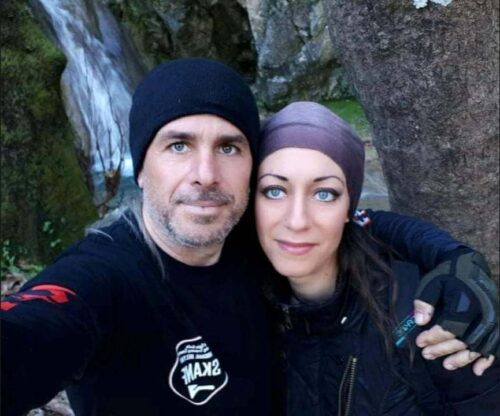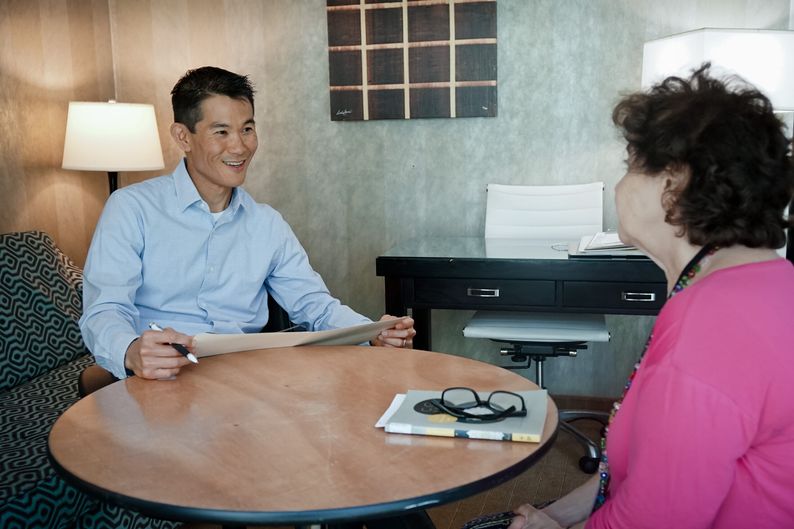Ryan Schultz, DVM (veterinarian) Cures Himself of Crohn’s Disease
My story is one of mental and physical transformation. I have always considered myself a healthy person. I have been a weightlifter for 15 years, eating as much protein as I could, as that was what the muscle building magazines and books told me was appropriate. The protein usually came in the form of dairy foods; I was taught since childhood that cow’s milk was the most nutritious and complete food. But I also ate plenty of meat.
| 6′ tall 35 year old male | Before | After |
| Weight | 186 lbs | 180 lbs |
| Body Fat | 17.5% | 10% |
About four years ago I had accomplished many of life’s major goals: I had completed college, veterinary school, an internship, and four additional years of residency. I married an intelligent and beautiful woman, I helped take care of the world’s animals, and thought I was taking good care of my own body. I worked out with weights four to six times a week, with another two to three workouts a week of cycling, running, hiking, kayaking, skiing or rafting.
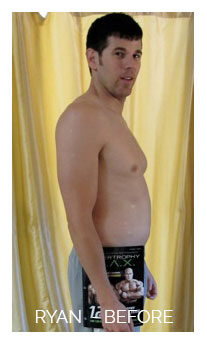 Out of the blue three years ago I developed a severe gastrointestinal disease. It took two board-certified gastroenterologists and another year and a half to receive the official diagnosis of Crohn’s disease, one of the most serious and debilitating of the inflammatory bowel diseases. In the beginning I couldn’t eat and was in severe pain. I let this turn of events consume me. I fell into a dark place, lost about 15 pounds of muscle, gained fat, and thought I could only eat easily digestible foods, such as simple sugars, due to two large and extensive intestinal strictures caused by the disease.
Out of the blue three years ago I developed a severe gastrointestinal disease. It took two board-certified gastroenterologists and another year and a half to receive the official diagnosis of Crohn’s disease, one of the most serious and debilitating of the inflammatory bowel diseases. In the beginning I couldn’t eat and was in severe pain. I let this turn of events consume me. I fell into a dark place, lost about 15 pounds of muscle, gained fat, and thought I could only eat easily digestible foods, such as simple sugars, due to two large and extensive intestinal strictures caused by the disease.
Family problems also began to develop since I didn’t have the energy to be active with my family. Because of the pain, fatigue, lethargy, and depression I was experiencing, all I wanted to do was sleep, relax, or lie on the couch and watch TV. For the first time in my life I developed work problems since I had to take many sick days; even eating felt like a chore. I just wanted to sleep. Getting through any simple workout, activity, or a workday taxed me to my limits.
Treatments for my disease didn’t help much. For the previous two years, five to seven days a week I had recurring symptoms. I was on and off high doses of the only treatment that helped, prednisone; but no one can stay on this medication permanently due to extensive side effects. I had tried all the high-end, immune-modulating drugs, which were costing me over $2,000 a month, and I was being pushed to have surgery to remove several feet of my intestines (including the strictures).
Even though none of medications helped, all five of my board-certified gastroenterologists and two board-certified surgeons strongly advised against me going off of them. I was told surgery would help with the strictures, but that different regions of inflammation always recur in Crohn’s patients after surgery.
The disease progressed even further and I developed bouts of intractable vomiting and unrelenting pain. I could not keep the oral pain medications down, and the anti-nausea medications didn’t work even though I was using the strongest ones available (typically used for chemotherapy patients). The first time this happened I was writhing around on the floor in cramping pain for several hours. My wife finally persuaded me that I needed to go to the emergency room. I was administered IV pain and anti-nausea medication, but the relief only lasted for a week or two. These painful bouts grew more frequent. I was being taken to the ER during workdays, at night, and on weekends. Even when I was told that my intestines were obstructed, I still refused surgery because I knew it was only a temporary fix.
I routinely thought, “What is all this for?” I had succumbed entirely to the disease and was very depressed. Aside from surgery, I was willing to try anything in order to regain my life and not lose everything I had worked so hard to achieve. I scoured the Internet for naturopathic doctors, books, magazines, nutritionists, cleanses, fad diets, probiotics, and vitamins. I talked to friends of friends who had claimed they knew someone who had similar problems and this or that had worked for them. Most of it did not help at all, including the Paleo diet. I was utterly discouraged. I had always been a very driven person with big goals, motivation and energy; I thought I would be able to overcome my disease, or at least reasonably manage it somehow.
In spite of all my doctors’ recommendations, I went off all of my medications. I felt they had not even listened to my issues or heard me when I told them my medications hadn’t helped at all. But now I realize they simply had nothing else to offer me. They didn’t know anything about the disease other than how to diagnose it. When I asked about diet, all of my doctors told me that Crohn’s disease has nothing to do with diet. They would just shake their heads and repeat, “Diet has been proven to have nothing to do with your disease.” Finally, I found Dr. McDougall after a friend gave me a copy of The China Study.
Since my condition was so severe, I started with the elimination diet as Dr. McDougall suggested. The first few days I only ate brown rice and canned peaches. And within a week I started feeling better and was without the daily cramping and the pain in my stomach that had previously brought me to my knees. I gradually added in different foods each week, and would take a break if I had a reaction to a specific food. The going was slow.
Now, nearly one year later, I am feeling better than I did before my illness showed up. I have had fewer than five bouts since I changed my diet, and none of them came close to landing me in the ER. My diet now mostly consists of white sweet potatoes (I don’t like the yams as well), brown rice, black beans, spinach, bananas, oranges, tomatoes, broccoli, peanut butter, and a few nuts. I can eat most vegan foods, although I am still working through the elimination diet in a slow process with less common foods. I found I had trouble with refined sugar, too many refried and garbanzo beans, corn, and several fruits. I typically use the microwave during the week to prepare my meals, with my wife cooking for us on the weekends. We also continue to eat out at least two to three times a week.
I feel like a “normal” person almost all the time now. I am an athlete again and can work out hard, whether it be weightlifting, running, cycling, hiking or anything else outdoors without feeling exhausted. My “before” picture was taken by my wife at the beginning of a year-long weightlifting program just a few months before starting the McDougall diet. My career life is great again, as I can handle the stress and long hours. My family life has never been better. I can do any activity with my family, or just spend time with them and listen without being in pain. I can honestly say I am truly happy again.
I have to admit that at one point within the last year I fell into the trap of thinking that I needed to eat a high-protein diet to see success with my weightlifting. I tried to add in only chicken for a week, as it seemed it may be the least likely of the animal foods to cause a problem. After my week of eating chicken, I went through another two weeks of painful torture; this was the longest and most painful bout I had experienced since starting the diet. I slowly recovered after those two weeks; and I proved to myself once and for all that it is my diet that most influences my disease.
I chose not to seek out yet another doctor, as it seemed all of them in my area believe the same thing about the connection between disease and diet. Instead I returned to my regular gastroenterologist, who just shook her head when I told her how I’ve been since starting the diet. She said she hopes I stay this way, but fears the disease just coincidentally went into remission and that it will strike again. With every visit, she reminds me that I should not have gone off the medications as I did; her reasoning: because they will not be as effective when I need to go back on them.
I have had my blood work checked three times. The anemia, elevated white blood cell count, and low blood proteins have all normalized. My doctor, however, still wants me to come in for check-ups and blood work every six months, she says, in order to catch the disease in its earlier stage, should it re-emerge, so we can get a handle on it with medication before it gets worse. I just shake my head.
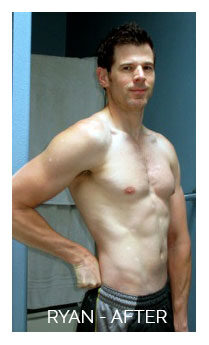 I still have a difficult time at social gatherings where there is food I used to enjoy and everyone else is eating it and feeling fine; it seems very unfair. I then feel sorry for myself. I really crave the sweets and deserts and have the hardest time when I’m hungry; but I always try to eat a large meal before going to such events. I try to look at the positives of the disease, at least when I can, and I believe in my state of teetering between health and disease I have learned what the optimum human diet consists of. So many others can eat poor diets for years before they realize the side effects of their actions, but if I slip up I suffer right away.
I still have a difficult time at social gatherings where there is food I used to enjoy and everyone else is eating it and feeling fine; it seems very unfair. I then feel sorry for myself. I really crave the sweets and deserts and have the hardest time when I’m hungry; but I always try to eat a large meal before going to such events. I try to look at the positives of the disease, at least when I can, and I believe in my state of teetering between health and disease I have learned what the optimum human diet consists of. So many others can eat poor diets for years before they realize the side effects of their actions, but if I slip up I suffer right away.
I am honored to share my experiences in the hope of helping others who may also have this disease and who struggle on a daily basis, thinking there may never be an end to the pain. I would like to tell them that medication and surgery are not the only answers since they may not alleviate the symptoms and may only bring temporary relief. I have found the most anti-inflammatory diet there is. To others with this disease, I say: If your gastroenterologist says the disease has nothing to do with diet, don’t believe them. Email Dr. McDougall, pick up his book, and start learning how to make yourself feel good again.
Sincerely,
Ryan Schultz, DVM, Diplomate ACVR
Recommended Articles
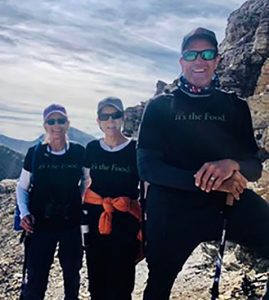
The Four of Us Agree: “It’s the Food®”
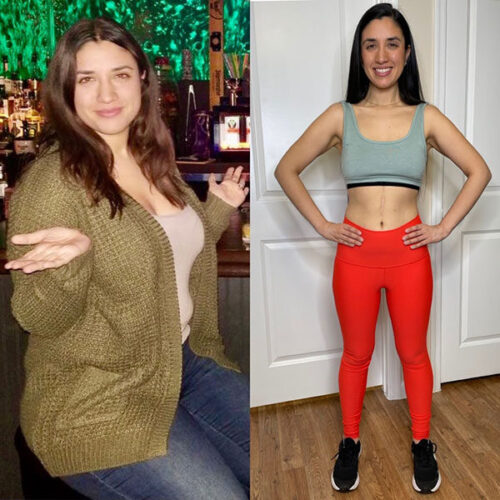
Manuela: Weight, High Blood Pressure, High Cholesterol and Kidney Stones are a thing of the past thanks to The Starch Solution!
